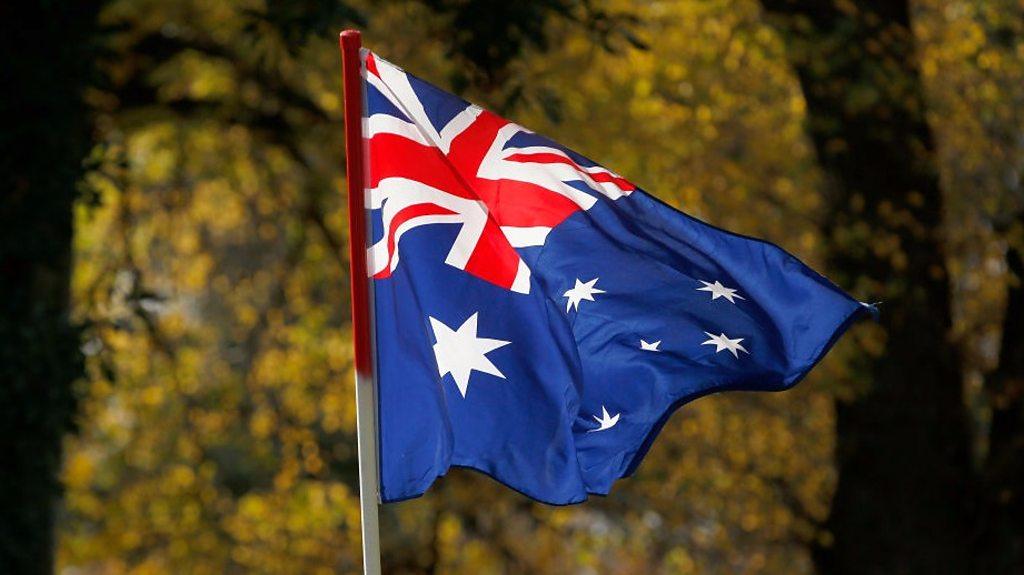Australia Day: Thousands defy Covid rules in 'Invasion Day' protests
- Published
Several arrested during Australia Day protests in Sydney
Several people have been arrested for breaking Covid rules protesting against the culturally sensitive Australia Day holiday.
At least five arrests were made in Sydney at a rally attended by around 2,000 people, despite rules limiting the numbers allowed to gather at 500.
The day is controversial as it marks the start of Australia's colonisation.
Australia Day is celebrated on 26 January, the anniversary of Britain's First Fleet arriving in Sydney in 1788.
Branded by its critics as "Invasion Day", it attracts annual protest rallies drawing attention to the injustices faced by Indigenous people.
For years, a "change the date" campaign led by Indigenous Australians has lobbied to move the national day.
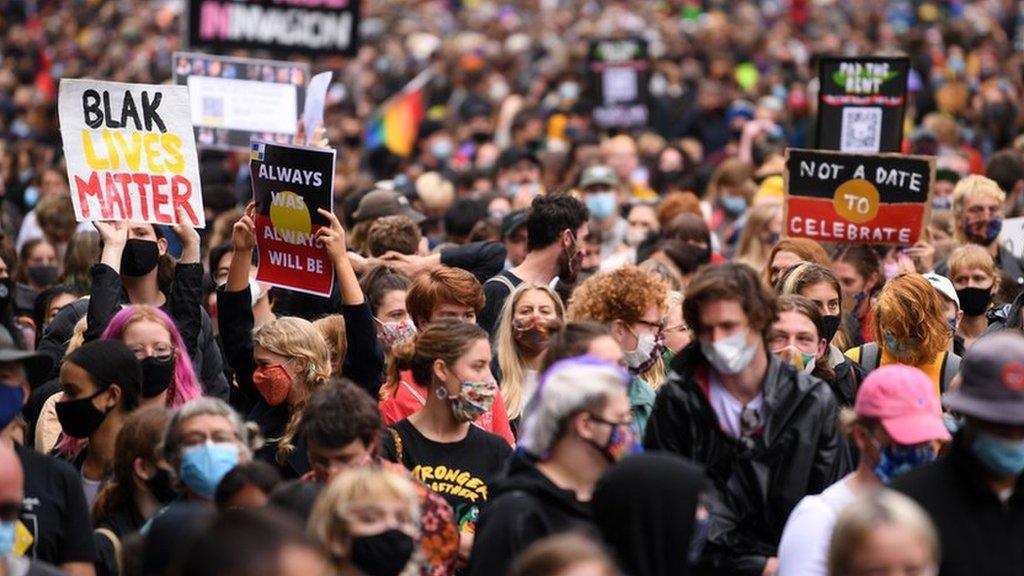
Australia Day has been controversial for years
The official events marking the day contain a lot of acknowledgements of the country's Indigenous past and traditions.
This year, the day began with a ceremony in Sydney that included traditional Indigenous dances and a smoking ceremony.
Covid concerns though led to some official events being cancelled.
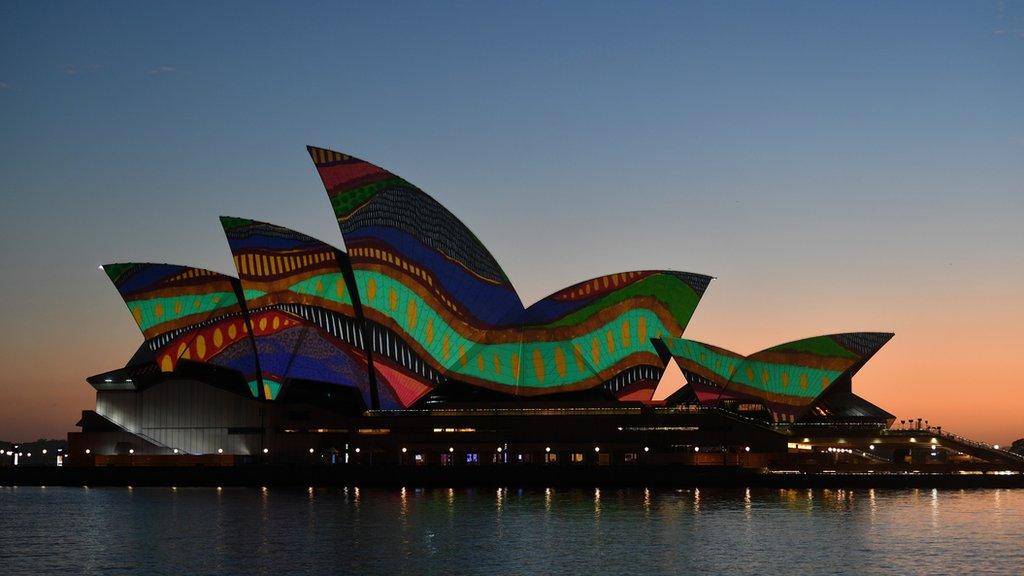
Sydney Opera House was lit up with Indigenous art
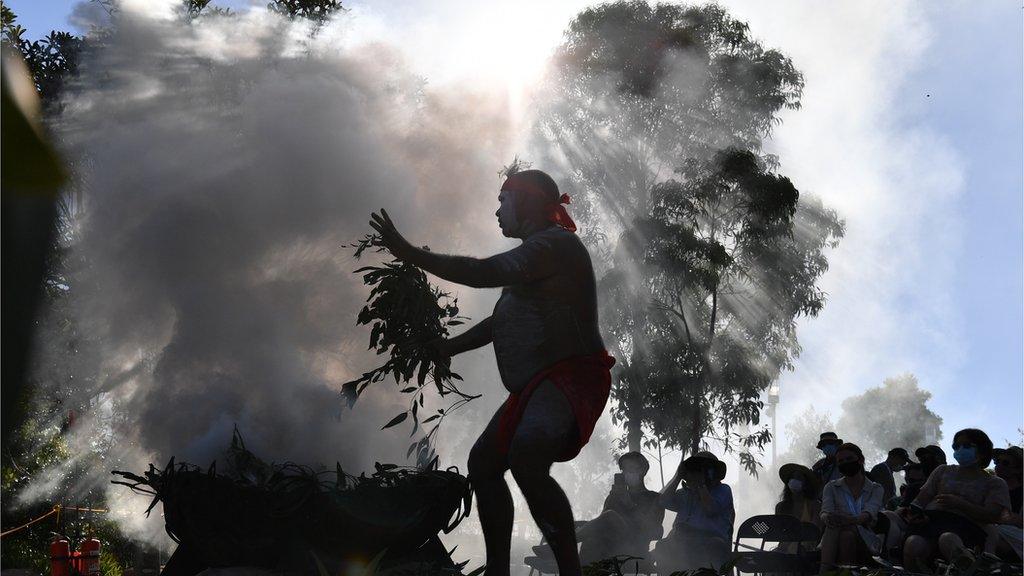
Indigenous performers during a smoking ceremony
During the Sydney protest, demonstrators shouted "sovereignty was never ceded" and "no justice, no peace", and held placards and banners reading "Not a Date to Celebrate" and "Black Lives Matter".
Authorities had refused to waive the cap on numbers for the protests this year, despite no new infections being recorded in the city for more than a week.
Thousands more attended rallies in other cities across the country, with organisers asking protesters to maintain physical distance where possible and wear masks.

A masked-up, socially distanced protest
Simon Atkinson, BBC News, Brisbane
While there are still Covid-related restrictions on gatherings in Queensland, about 5,000 people joined the rally in central Brisbane.
Social distancing was tricky in places - but there were QR codes to sign in. And even in a city with no known coronavirus cases, pretty much everyone followed organiser requests to wear a mask, despite the high temperatures.
Demands to switch the date of this public holiday - or to abolish Australia Day altogether - are at the heart of "Invasion Day" events. As one homemade placard put it - "Real Australians Don't Celebrate Genocide".
But it is not the only issue. In Queens Gardens, crowds chanted the name of "Aunty Sherry" - an Indigenous Australian woman found dead in a Brisbane police station last year. The crisis of Aboriginal deaths in custody - almost 450 since a 1991 Royal Commission - dominated Black Lives Matter protests in Australia, and remains a pressing concern.
And on the fringes of the march, I noticed the people walking - and often looking - the other way.
Carrying slabs of beer and dressed to impress, it's always worth remembering that for many Australians (and a poll this week suggests it's a vast majority) there's no real clamour for change, and that 26 January remains a day to party, to see friends and indeed to celebrate.

Despite the controversy around the day, the Australian government has maintained its support for the holiday and polls show most Australians in favour of keeping it.
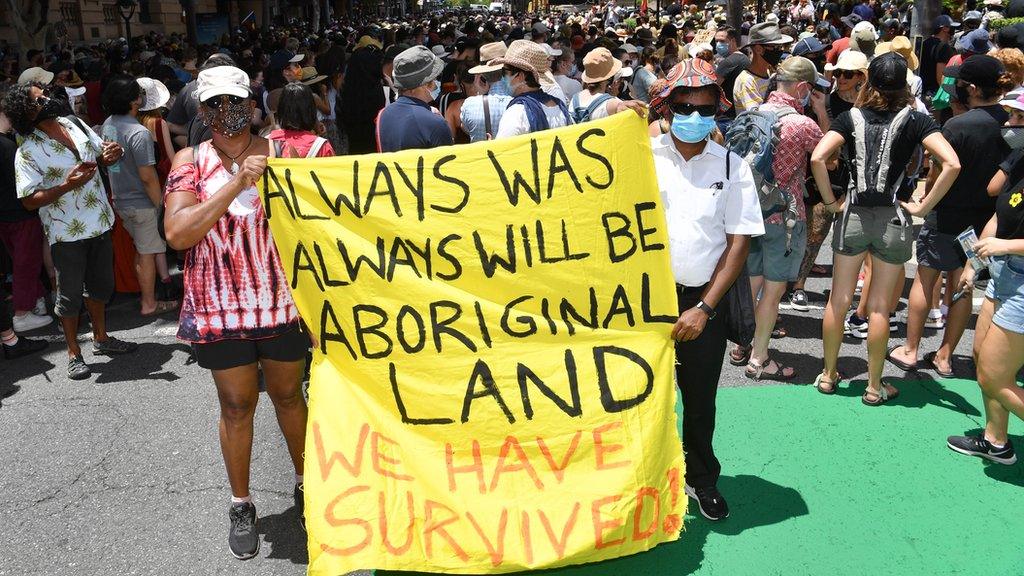
Protesters say the day is offensive to the Indigenous population
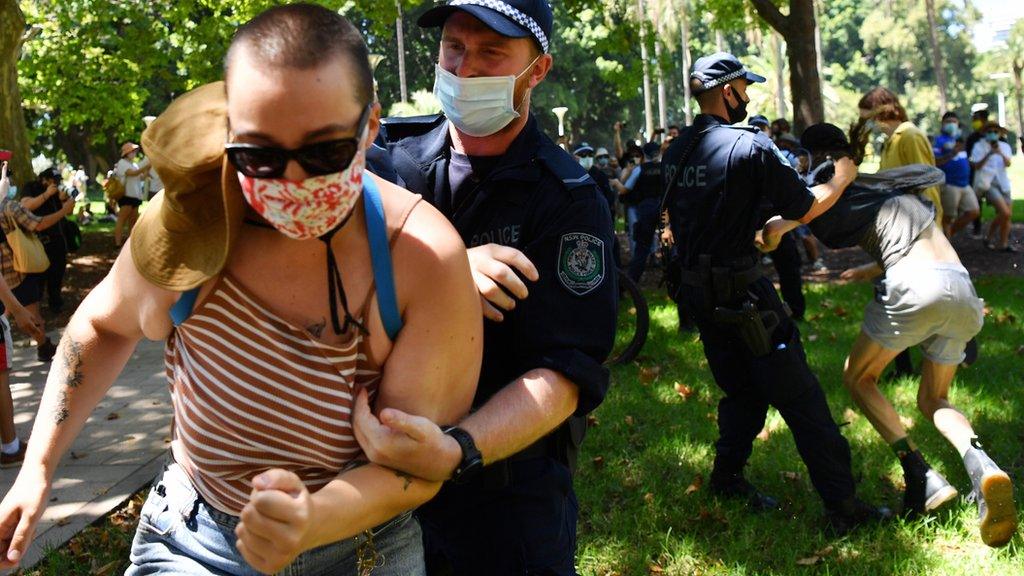
At least five protesters were arrested in Sydney
The country's Prime Minister Scott Morrison said the day represents how far Australia had come since the First Fleet arrived.
"There is no escaping or cancelling this fact," he said at a ceremony in the capital Canberra. "For better and worse, it was the moment where the journey to our modern nation began."
Why Australia Day is controversial (published in 2018)
Related topics
- Published16 July 2020
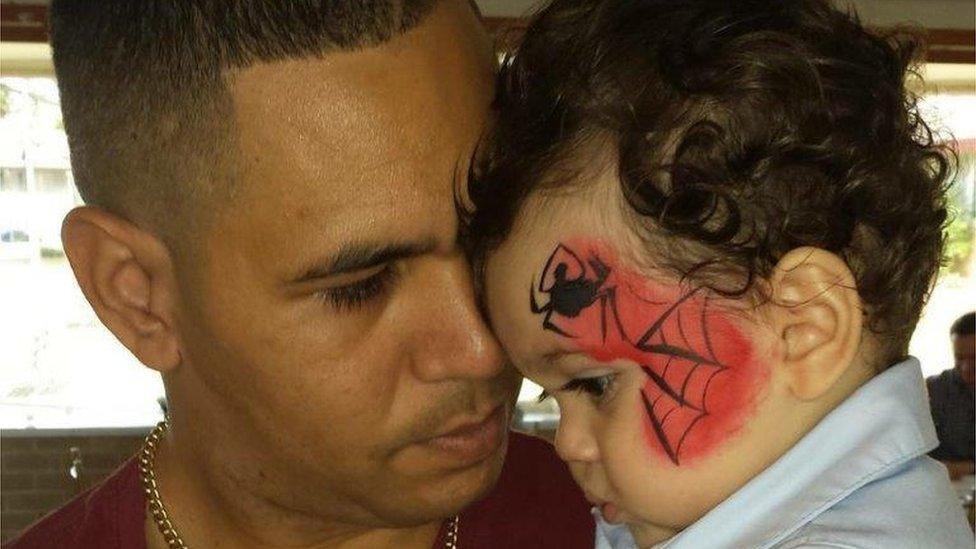
- Published21 January 2021
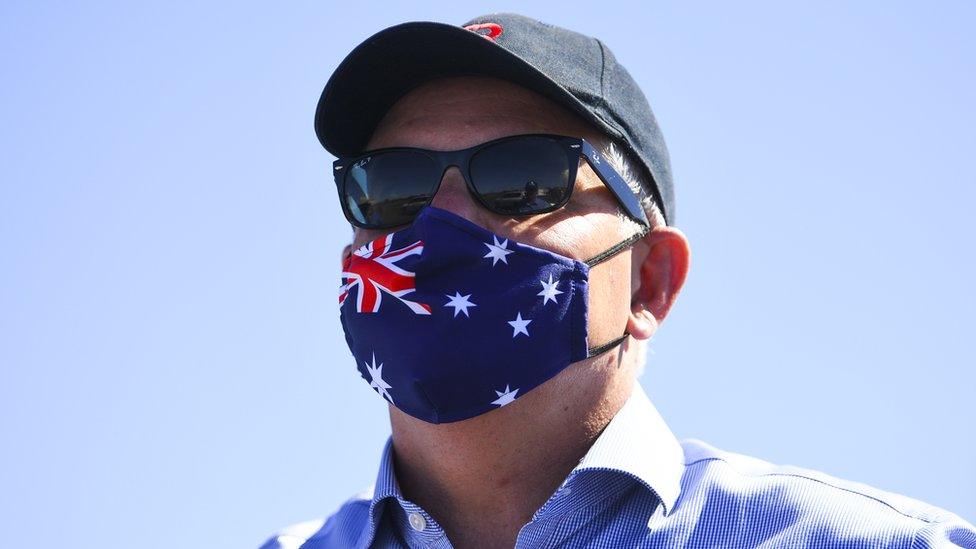
- Published25 January 2018
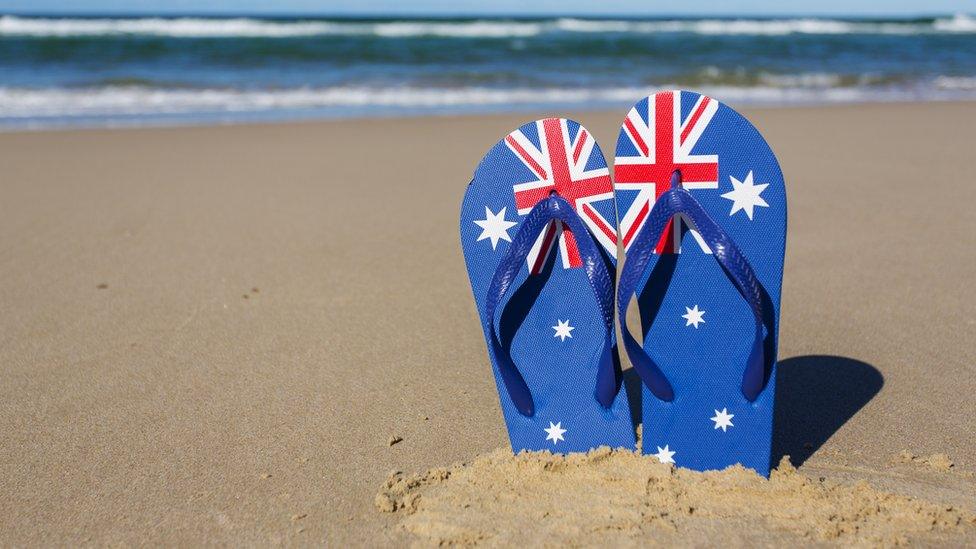
- Published26 January 2018
